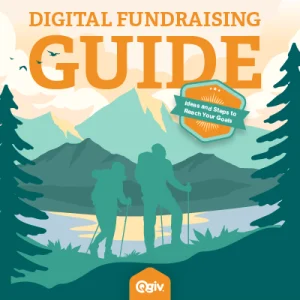Last week I talked about millennial engagement and how it’s not as scary as it seems. Remember: the secret to getting younger people involved isn’t complicated. We want you to talk to us just like our parents want you to talk to them. The only significant difference is that we’re more technologically “plugged in” than our parents.
Remember how we talked about telling your story? That’s easy to do online, and it’s easy to spread your story around and get it in front of people who want to help you.
You could have the best story in the world and you could share it everywhere, but if you don’t help your supporters help you, we probably won’t get involved. Volunteers are important; if an individual volunteers with your organization, they are much more likely to donate later. So what’s the best way to get volunteers (and donors!)?
Millennial engagement, step two: help us help you
1. Let us know you need help
Studies shows that a significant percentage of young millennials volunteered for nonprofits in 2012 – and the number goes up if you count “older” millennials. We are definitely ready and willing to work. Make sure we know you need help online or by word of mouth: a whopping 81% of people find out about volunteer opportunities through families or friends, 72% get information from e-mails, and 67% look at an organization’s website for opportunities.
2. Don’t waste our time
We want to know what we’ll be doing with your organization. According to research on annual donation programs, young volunteers are most likely to lose interest after “a bad experience or a situation in which volunteers’ time is used badly” and suggests that nonprofits “be clear in your expectations and the time needed of volunteers beforehand.” Millennials or not, nobody likes wasting time!
3. Be flexible
Multiple studies indicate that nonprofits must offer flexible volunteering opportunities in order to recruit younger volunteers. One 2012 study, which focuses on individuals ages 20-35, stresses the importance of offering both one-time volunteering opportunities and long-term commitments. Another study further emphasizes flexibility when dealing with teenagers; teens prefer to work extremely flexible hours and, more importantly, prefer to volunteer in social settings where they can work with friends.








